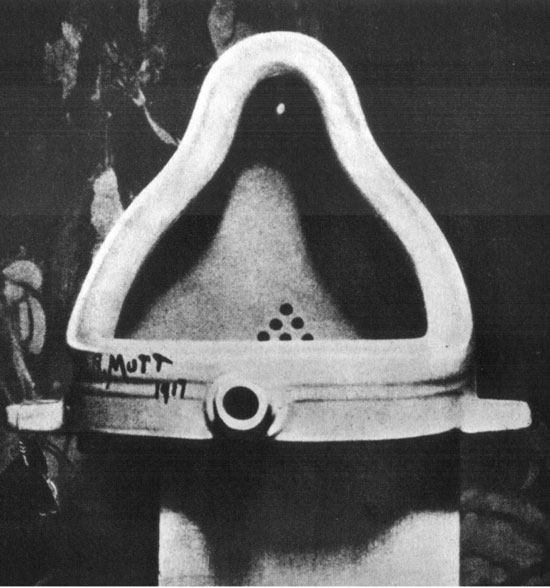You have no items in your cart. Want to get some nice things?
Go shopping
In 1918, Tristan Tzara wrote a fiery manifesto for the Dadaist movement. He set out to “destroy the drawers of the brain, and those of social organization,” and to wage war against the “ridiculous knowledge of life, which they have classified, parcelled out, canalized.” He meant it, too. This is a program for the energy of life in roaring colours and nihilist intensity, and Dadaist anti-art would soon spread over the continent, sweeping, with Marcel Duchamp and Francis Picabia, over to New York. Yet why this preoccupation with knowledge? For Tzara, how we know is not just a matter of defining the truth – it is a political question of power. If our cognition structures the world, or organizes it in “drawers of the brain”, to stay with him for a moment longer, then this also means that anything we hold for true necessarily needs to fit into those categories to be justified.
Yet who defines those drawers, those categories? According to Tzara, it is social organization and Western philosophy that put a straitjacket on reality by making it dance to preconceived notions of how the world is, and should, be structured. For other modernists, this is also a matter of gender roles, or of race and ethnicity. With art and literature on the side of life, the “poor two-dimensional stuff” of thought (Ezra Pound) is only a scant shadow of the energy that drives the modernist avant-garde. This made possible the radical creativity of James Joyce’s or Gertrude Stein’s experiments with another pre-formed system, language itself; but it also tipped over into the Futurist glorification of war and Ezra Pound’s ill-fated fascination with another energetic force of the age – fascism.
At first glance, this crisis of knowledge seems a child of its time. At the beginning of the last century, categories of knowledge, or truth and understanding, became increasingly elusive. The transformation even of physics, a science hitherto associated with tangible, perceptible empiricism, is just one example of this shift. New physical discoveries of relativity and atomic structures highlighted the fact that matter itself is indeterminate and eludes sensory perception. Henry Adams’ visit to Great Exposition of 1900 thus turns into an epistemological crisis. He is gripped by the gulf between factual knowledge and understanding when he faces the exhibits, emblems of a newly accelerated, technological era, such as steam technology. “While he was thus meditating chaos” (Adams 1907), his failure of knowledge points to the epistemological upheaval of the modernist era. It changed ideas of how we arrive at knowledge, and revolutionized the interconnections between empiricism, rationality, and the imagination.
But in many ways, this crisis has not abated; the echo chamber of the Internet also changes the trajectories by which we arrive at what we call knowledge, in the feedback loops which ensure that the biases which inform the questions we type in, also shape the answers we get. More often than not, this has little to do with verifiable fact, but is again intrinsically linked to politics – if truth is constructed by consensus and affirmation, this confirms that knowledge today continues to be shaped by contemporary versions of the power structures which Tzara polemicized against in 1918.
Let’s take a moment to consider this. Art and literature – these modernists seems to suggest – are somehow closer to life and in opposition to that kind of knowledge that takes rationality as its trump card. This, in the end, implies a theory of a radical aesthetic based on cognition, which, in turn, leads to an intriguing question: is literature, then, an alternative form of knowledge?
Put this in relation with science, and the issue becomes contested. Prof. James Ladyman in the Royal Institute of Philosophy Annual Debate recently argued that literature can only contribute to our understanding of human nature when it reflects scientific findings, but cannot actually develop such a knowledge independently. This is quite a representative opinion, relying on the premises of objectivity to shape views of the human condition, of our bodies, minds, and environment. And let’s face it, questions such as ‘Where do babies come from’ up to understanding the highly complex processes of Alzheimer’s have been approached quite effectively by the scientific progress.
Yet this view of literature and art as a secondary, purely reflective source of understanding is not un-challenged. If there is such a thing as literary cognition, then we need to think about it in different terms. Imaginative literature is not about defining a fixed truth, and it does not pretend to, either. Yet it does achieve something else: it makes visible the experience of cognition, individual and impacted by language, and the conditions which shape it.
I would like to suggest that literature, and perhaps the arts in general, turn cognition, into something more multi-dimensional: it interlinks the senses and thinking, and has an emotional component as much as it is a form of critique. This can reveal new interconnections between the self and nature, as when Virginia Woolf is responds to the “avalanche of meaning” in a puddle in the park. It can lead to voicing an experience that is at the limits of knowability, such as the Holocaust in Paul Celan’s poetry and World War One in ee cummings’ La Guerre poems. Or claims to specific forms of knowledge can be part of a more directly political project, as in Mina Loy’s feminist poem Parturition in which the female body, giving birth, assumes “I am knowing” in an embodied sense. Let’s end where we started, though, and give Tzara’s nihilist anarchy the last word: “Knowledge, Knowledge, Knowledge. Boomboom, Boomboom, Boomboom.”

About Katharina Donn
Katharina Donn’s first book, A Poetics of Trauma after 9/11", has been published by Routledge in 2016. She works internationally, between Germany and London, and is employed as associate lecturer and post-doctoral research fellow at the American Studies Department at the University of Augsburg. She has also held positions with the University of Texas at Austin and with the Institute of Advanced Studies at UCL. She enjoys being a transnational traveller, commuting between Germany and the UK, and works with the Brilliant Club at London state schools to advocate equality in education.




